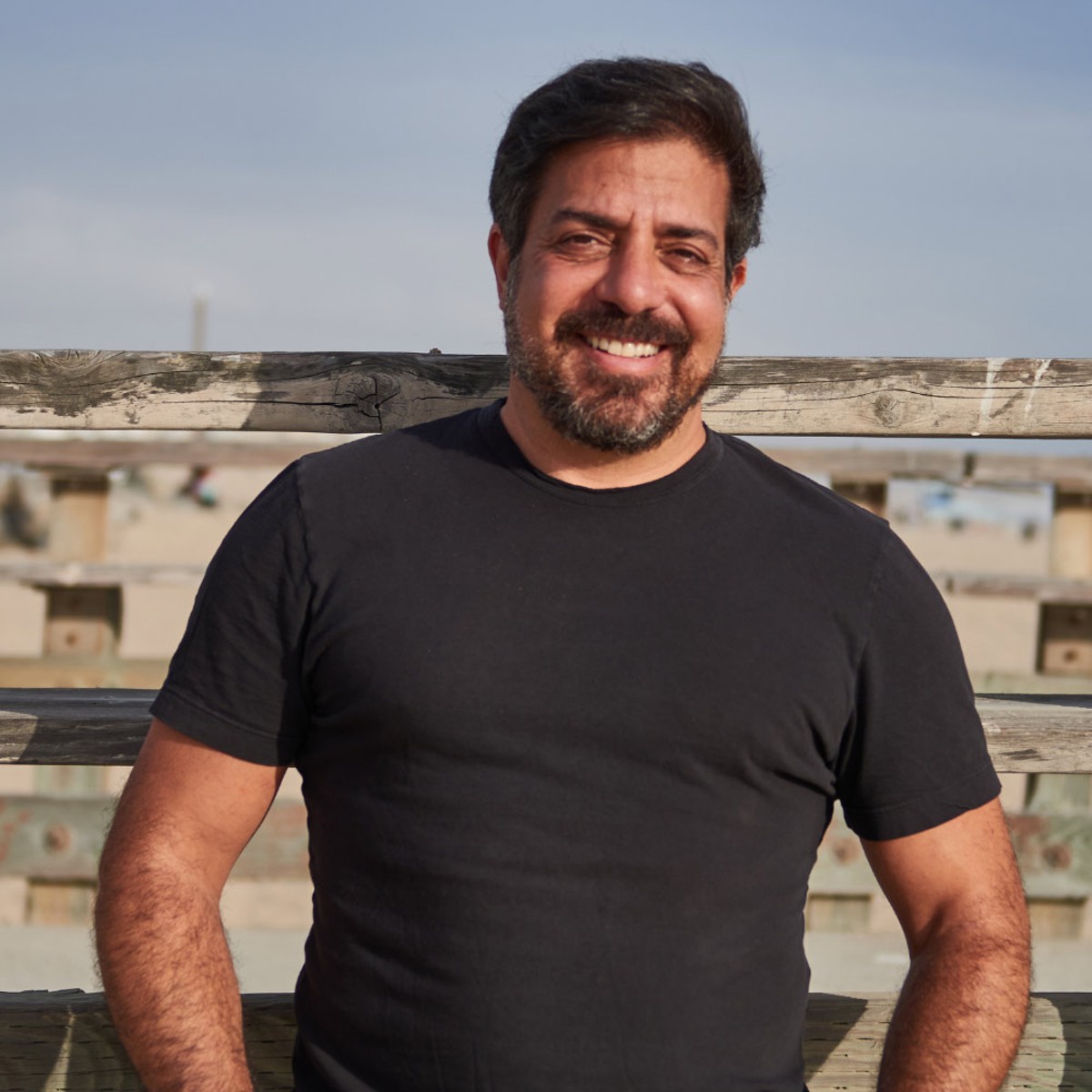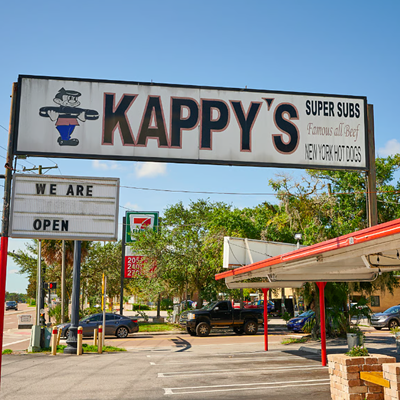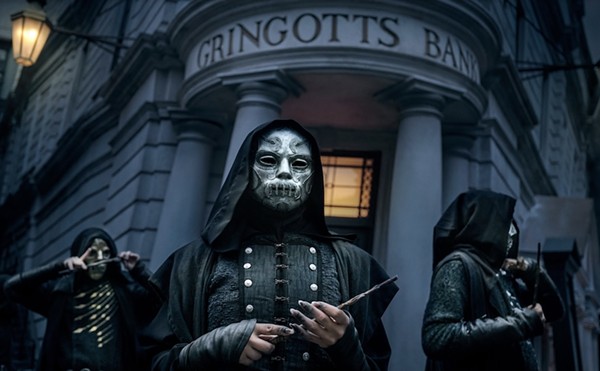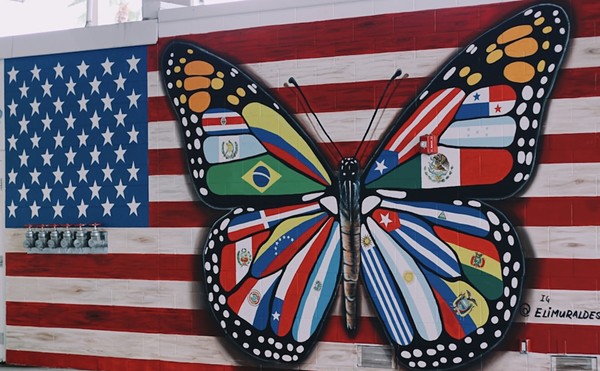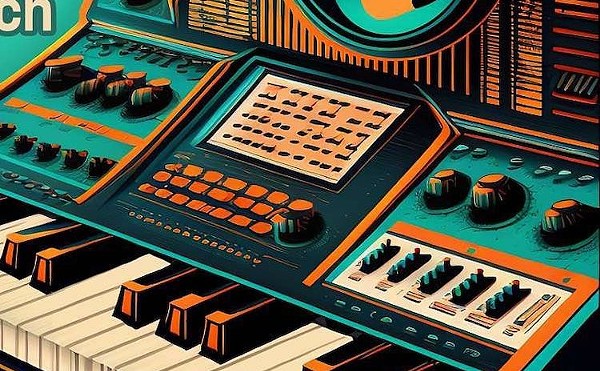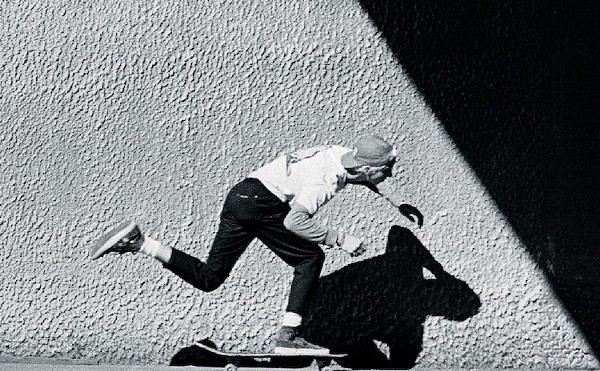For nearly 10 years, Brooklyn-born composer Murray Hidary has toured the globe with MindTravel, his improvisational "silent piano" concert experience, which comes to Orlando's Lake Eola Park Wednesday evening (6-8 p.m., Sept. 25, $15-$45). I recently interviewed the multidisciplinary artist while he was in St. Petersburg preparing to perform for an audience of 600, and asked Hidary about ...
... his early interest in music:
I was 5 years old when I started playing music. I grew up with music, playing the cello and then the piano at 5 and 6 years old, respectively. Very quickly, the piano became a real kind of refuge for me, a real solace for me; a way to just kind of get lost in my imagination. I was quite shy as a kid and definitely more introverted, and so the piano became this means of expression. By the time I got to high school, I knew I wanted to be a composer.
... studying under Philip Glass:
I was fortunate enough to meet Philip Glass, and got to have him mentor me for a brief time. ... I would go to his studio and share my music and play on his piano, where he wrote Einstein on the Beach and all of that. So it was a pretty remarkable kind of fortune for me as a young man, starting out with my music and looking to find my voice. That's something I think he really helped me with.
... Eastern meditation's influence on his compositional method:
As a composer, you learn to improvise, to find patterns and melodies and harmonies and see what comes out, and then use that in a composition. But for me, that process of improvising took on a life of its own and became its own experience. It became its own extemporaneous, meditative experience for me, just sitting at home, doing it alone. I would have sessions where I would go for an hour or longer and just get lost [in] the music. ... It kept evolving [to] have the arc of a story through the music over the course of an hour, [and] then I added the spoken word toward the end as a way to anchor people into a bit less of an abstract reflection about a certain theme.
... traveling the world with his faux "grand piano":
When I first started, it was a keyboard on a keyboard stand on the beach hooked up to a big battery. I missed the feel of a grand piano from playing at home and playing in concert halls. [So] I created a sculpture of a grand piano modeled off the dimensions of a Steinway that's modular, so it actually comes apart in a dozen pieces, and I can literally check it on an airplane. It weighs less than 100 pounds [and] that's what we assemble on the beach and in the parks all over the place, and then we place the keyboard inside. And I will tell you, probably 99 percent of people think it's a real grand piano on the beach [but] you don't hear anything from the outside because it runs to the mixer, where it outputs to a RF transmitter [to the audience's headphones], so we're essentially set up like our own radio station at the beach.
... memorable locations he's performed MindTravel in:
We've taken this coast to coast. We actually did two different cross-country trips, taking it through every state, across from the East Coast to the West Coast, from the Midwest to the South. Most of the time we are [at] beaches and parks. ... I played the other day with a distant lightning storm over the ocean all the way on the horizon, and it was a light show; it was incredible, and I got to improvise to that.
Believe it or not, this piano has been on the ice of Antarctica. I went on an expedition with 150 people [and] we put it on a plane [from] the tip of Argentina, then we put it on a ship. There's very strict rules about what you can do on Antarctica and what you can bring. One of the rules is you can't have any amplified sound to disturb the wildlife [but] they allowed us to do it because of the headphones. It's also been at the Pyramids of Giza and in the Serengeti during a safari wildlife expedition.
... how his sister's death inspires Hidary's art:
It was quite a number of years after I started MindTravel that I ever even shared publicly the death of my sister and how that was the impetus for MindTravel. It was very personal, very sacred to me [until I shared] it on the TEDx stage at Berkeley.
[Audience members] would come up to me and they would share their grief. They would share their story of loss, because they heard it in the music, a sadness and a melancholy. They also heard a triumphant hopefulness and a healing, and that's what the music has done for me. It held space for my hurt, for my sadness, for my loss, which was inexpressible in any other way for me, and it enabled me to gain footing — to gain a real emotional and existential footing from which to push off [during] the lowest point of my life.
I turned to what I knew, which was music — this language of emotion, of the human experience — and said, OK, I'm going to pour myself into it. And by expressing it and pouring it out of me, it really did open something up for me in a very new way, which is what I bring to people now.
Subscribe to Orlando Weekly newsletters.
Follow us: Apple News | Google News | NewsBreak | Reddit | Instagram | Facebook | Twitter | or sign up for our RSS Feed

